We must understand the connection between inner solitude and inner silence; they are inseparable. All the masters of the interior life speak of the two in the same breath.
RICHARD J. FOSTERFour times a year withdraw for three to four hours for the purpose of reorienting your life goals
More Richard J. Foster Quotes
-





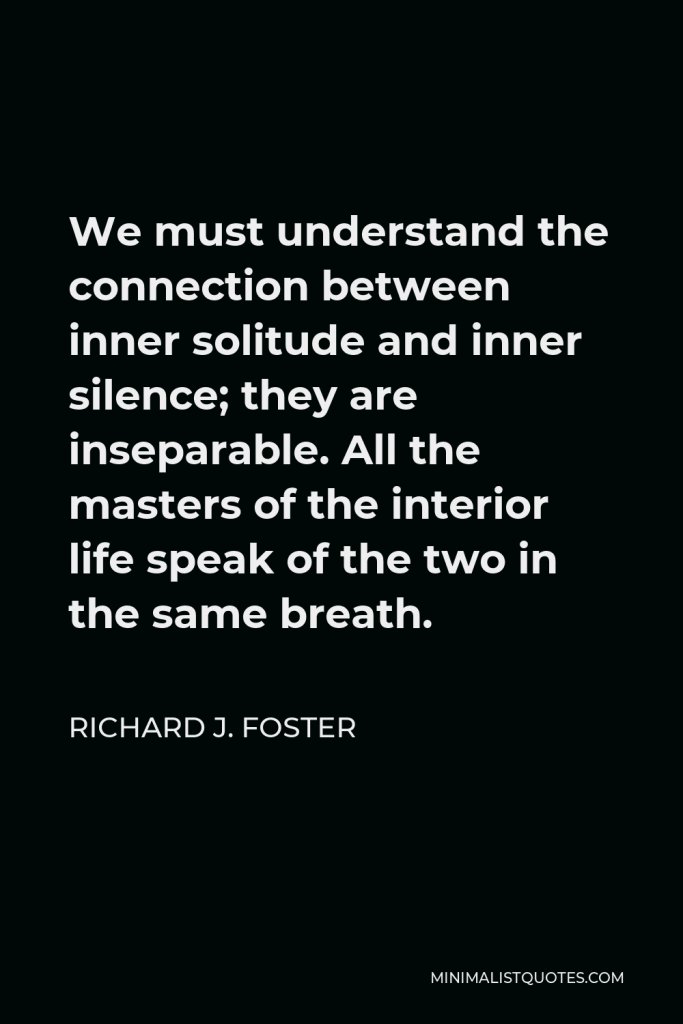

-







We over-eat, over-buy, and over-built, spewing out our toxic wastes upon the earth and into the air.
RICHARD J. FOSTER -






Superficiality is the curse of our age. The doctrine of instant satisfaction is a primary spiritual problem.
RICHARD J. FOSTER -





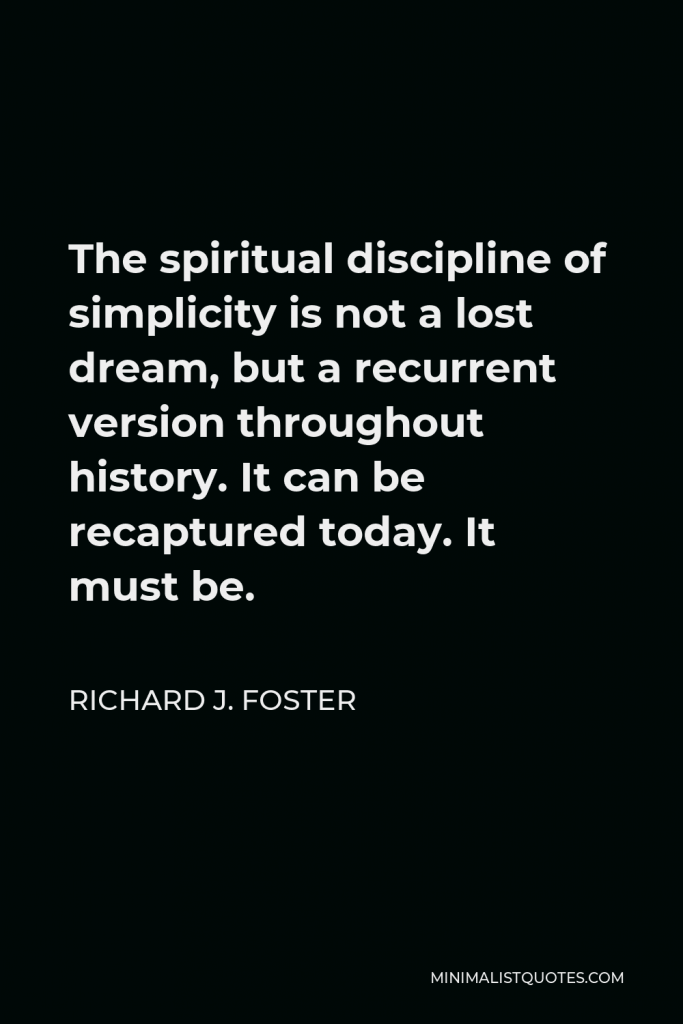

The spiritual discipline of simplicity is not a lost dream, but a recurrent version throughout history. It can be recaptured today. It must be.
RICHARD J. FOSTER -






When we determine to dwell on the good and excellent things in life, we will be so full of those things that they will tend to swallow our problems.
RICHARD J. FOSTER -






The desperate need today is not for a greater number of intelligent people, or gifted people, but for deep people.
RICHARD J. FOSTER -





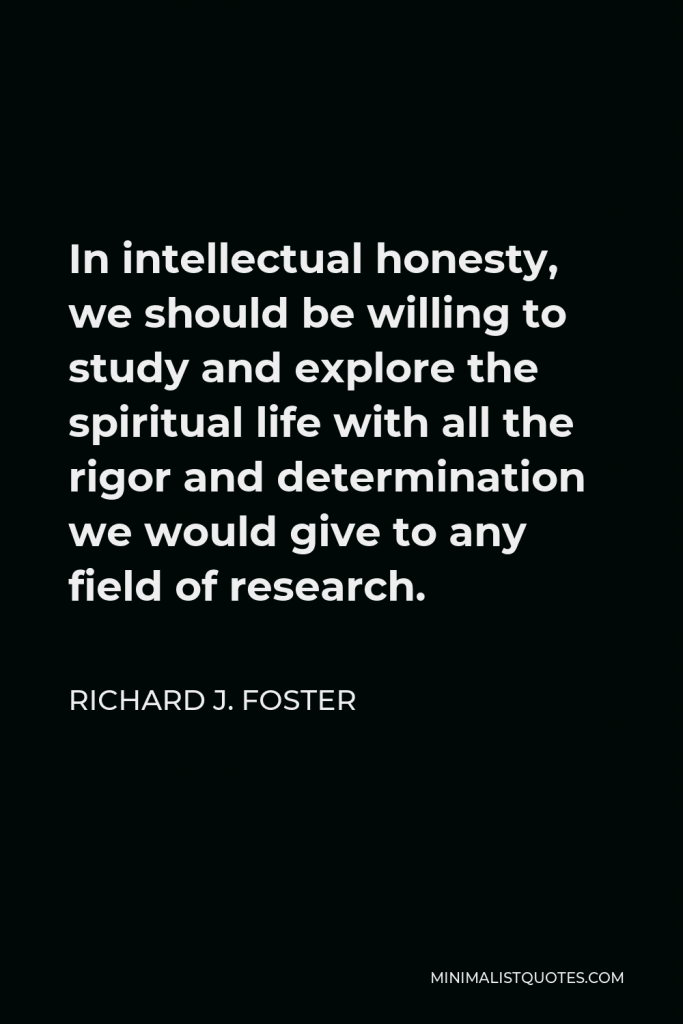

In intellectual honesty, we should be willing to study and explore the spiritual life with all the rigor and determination we would give to any field of research.
RICHARD J. FOSTER -






You will never have time for prayer; you must make time.
RICHARD J. FOSTER -






Because we lack a divine Center our need for security has led us into an insane attachment to things.
RICHARD J. FOSTER -





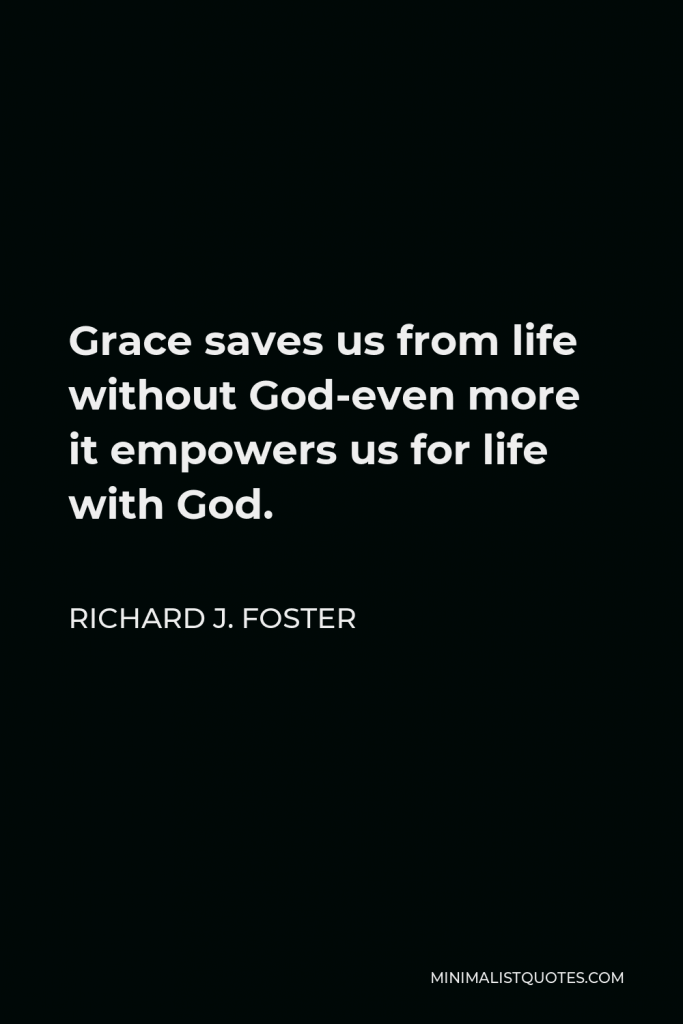

Grace saves us from life without God-even more it empowers us for life with God.
RICHARD J. FOSTER -







Real prayer comes not from gritting our teeth but from falling in love.
RICHARD J. FOSTER -







It is an occupational hazard of devout folk to become stuffy bores. This should not be. Of all people, we should be the most free, alive, interesting.
RICHARD J. FOSTER -






Simplicity enables us to live lives of integrity in the face of the terrible realities of our global village.
RICHARD J. FOSTER -






Just as worship begins in holy expectancy, it ends in holy obedience. If worship does not propel us into greater obedience, it has not been worship.
RICHARD J. FOSTER -





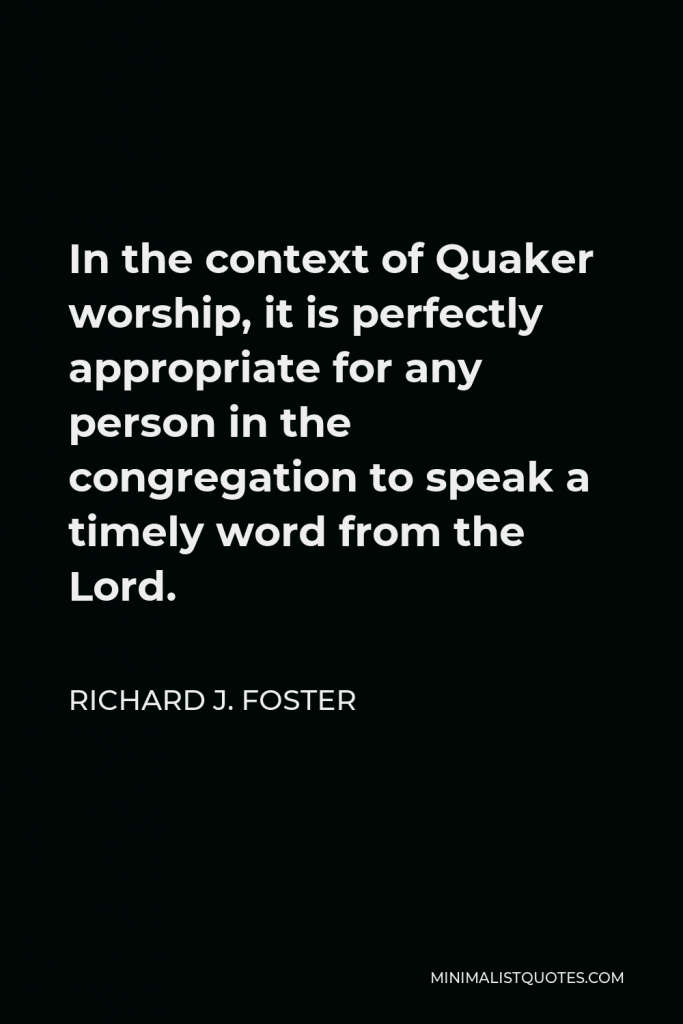

In the context of Quaker worship, it is perfectly appropriate for any person in the congregation to speak a timely word from the Lord.
RICHARD J. FOSTER -





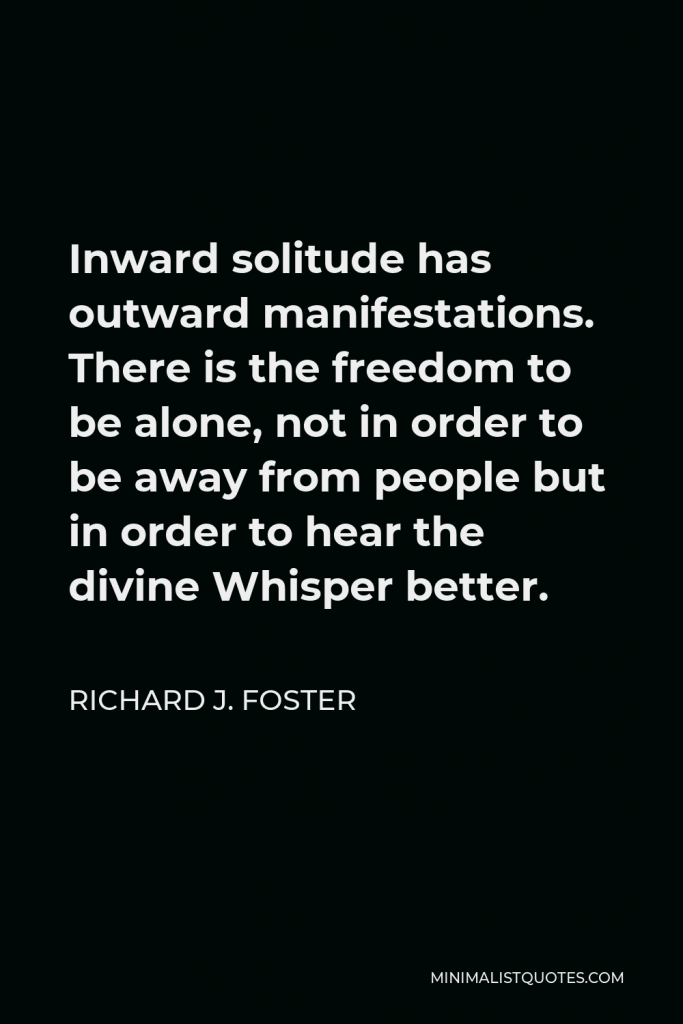

Inward solitude has outward manifestations. There is the freedom to be alone, not in order to be away from people but in order to hear the divine Whisper better.
RICHARD J. FOSTER







